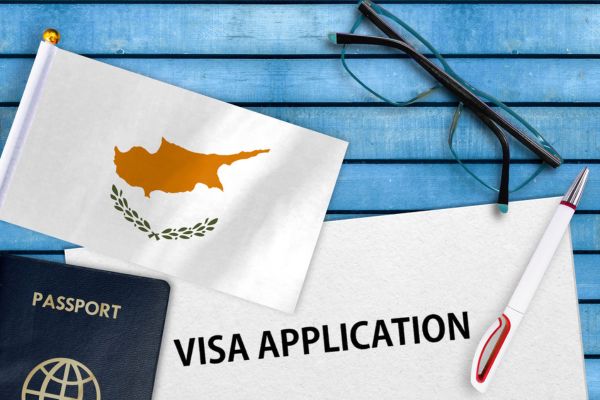Guide to Moving to Cyprus from the UK for Work

by Hayley
Moving to Cyprus from the UK, including the beautiful region of Northern Cyprus, has become increasingly popular for British people seeking new job opportunities and a better quality of life. With its beautiful Mediterranean climate, rich history, and vibrant culture, Cyprus offers a unique blend of European and Middle Eastern influences that make it an attractive destination. However, the impact of Brexit has introduced new challenges and requirements for those looking to relocate.
In this guide, we will cover everything you need to know about moving to Cyprus for work. From understanding the different types of work visas and permits to navigating the living costs and healthcare system, this comprehensive guide will provide you with the essential information to ensure a smooth transition. Whether you’re moving alone or with family members, this guide will help you navigate the complexities of relocating to Cyprus and make the most of your new life on this beautiful island.
If you need any assistance with removals to Cyprus, make sure to contact us today. Now, let’s get started on our guide to moving to Cyprus from the UK
1. Understanding the Cyprus Work Visa
For British people moving to Cyprus, understanding the various visa options is crucial.
Post-Brexit, UK nationals now require a visa or residence permit to stay in Cyprus for more than 90 days. The Cyprus government offers a range of visa options, including:
-
- Work visas
- Business development visas
- Family visas
- Refugee and humanitarian protection immigration visas
UK citizens who were lawfully resident in Cyprus before January 1st, 2021, are protected by the EU/Brexit Withdrawal Agreement, which ensures their rights to live, work, and study remain as before.
Depending on your residency status before January 1st, 2021, and your specific needs, you may need an entry visa, such as a short-term work visa, a long-term work visa, or a temporary residence permit for employment. Each visa type, including the temporary visa, has its own requirements and application processes, which we will explore in detail in the following subsections.
Short-term work visa
A short-term work visa in Cyprus allows British people to:
-
- Stay in the country for up to 90 days within a 180-day period
- Engage in short-term employment or business activities
- Have multiple entries, making it convenient for those who may need to travel frequently.
British citizens can apply for this student visa under the multiple-entry rule, ensuring flexibility in their travel plans.
Long-term work visa
For those planning to stay in Cyprus for more than 90 days, a long-term work visa is required. This visa is specifically designed for non-EU nationals, including British nationals, who intend to settle in Cyprus for an extended period. To apply for a long-term work visa, applicants must provide a letter of recommendation from the Department of Labour, which their employer in Cyprus must obtain.
The long-term work visa process involves several steps, including submitting the necessary documentation and undergoing background checks. Once approved, this visa allows you to reside in Cyprus long-term, provided you continue to meet the visa requirements and maintain your employment status.
Temporary residence permit for employment
In addition to obtaining a work visa, UK nationals planning to stay in Cyprus for more than 90 days must also apply for a temporary residence permit. This permit is essential for legally residing in Cyprus and is typically valid for 12 months, with the option to renew annually.
Before applying for a temporary residence permit, applicants must first secure a work visa and permit. The temporary residence permit ensures that foreign nationals comply with local immigration laws and can legally reside and work in Cyprus for the duration of their stay. It is important to note that this permit is different from a permanent residence permit, which allows for long-term residency and obtaining permanent residency.
2. How to Obtain a Cyprus Work Permit
Obtaining a Cyprus work permit is a multi-step process that requires careful planning and coordination between the applicant and their employer. UK nationals need a visa to work in Cyprus, typically requiring a one-year long-stay visa supported by employer letters. The process involves securing an employment offer and a work contract with a Cypriot company, which is a prerequisite for the work permit application.
Upon arrival in Cyprus, UK nationals must immediately apply for an Alien Registration Card and a social security number, which are essential for legal employment and access to various services. The following subsections will detail the specific responsibilities of employers, the required documents, and the application timeline.
Employer responsibilities
Cypriot employers play a crucial role in the work permit application process for foreign employees. They must:
-
- Apply for the work permit on behalf of the employee
- Ensure that all necessary documentation is submitted to the Civil Registry and Migration Department
- Obtain approval from the Cyprus Department of Labour before proceeding with the application.
Additionally, employers must provide a Tax Clearance Certificate and a Bank Guarantee Letter, proving that they have paid the necessary guarantee for the employee. Ensuring compliance with local labour rules and immigration guidelines is essential to avoid any legal issues and facilitate a smooth work permit application process.
Required documents
The application for a Cyprus work permit requires several essential documents. Applicants must provide:
-
- Their original employment contract
- A certificate of police clearance issued within the past six months
- Medical certificates showing results for Tuberculosis, Hepatitis B and C, HIV/AIDS, and syphilis.
These documents, including the Cyprus visa, ensure that applicants meet the health and legal requirements for working in Cyprus.
Application timeline
The processing time for a Cyprus work permit typically ranges between 4-6 weeks, but it can take up to six months in some cases. It is recommended to apply well in advance to account for variability in processing times and ensure a smoother application process.
3. Living Costs and Lifestyle in Cyprus
The cost of living in Cyprus is generally lower than in the UK, with many aspects of daily life being more affordable.
Overall, the cost of living in Cyprus can be up to 57% cheaper than in the UK. For example, a single person’s estimated monthly costs are approximately €859 (£727) without rent, whereas a family of four’s estimated monthly costs are around €3,016 (£2554) without rent. These figures highlight the potential savings and more relaxed lifestyle that Cyprus can offer.
Compared to the EU average, the cost of living in Cyprus is about 10% lower, making it an attractive destination for those looking to reduce their living expenses while enjoying a high standard of living. The following subsections will provide more detailed information on housing, transportation, and daily expenses in Cyprus.
Housing and accommodation
Housing and accommodation costs in Cyprus are generally more affordable than in the UK. Property rentals and purchases can be 10-20% lower, with rental costs being more expensive in the capital Limassol but still providing significant savings compared to London. For example, the monthly rent for a one-bedroom apartment in the city centre ranges between €550 (£465) and €1,600 (£1355), while outside the city centre, it ranges from €450 (£381) to €1,200 (£1016).
Most British expats tend to live in Paphos and Limassol, where they can find a range of housing options to suit different budgets. Some examples of housing options in these cities include:
-
- Three-bedroom apartments in the city centre, which can cost between €1,000 (£847) and €3,000 (£2541) per month
- Villas with private pools, which can range from €1,500 (£1270) to €5,000 (£4235) per month
- Townhouses in residential complexes, which can range from €800 (£677) to €2,500 (£2117) per month
These options offer more affordable choices compared to major UK cities.
Transportation
Transportation costs in Cyprus are also relatively low. A one-way ticket for local transport costs between €1.50 (£1.27) and €2.40 (£2.03), while a regular monthly pass costs around €50 (£42.35).
For those who prefer to drive, gasoline prices range from €5.15 (£4.36) to €6.06 (£5.59) per gallon. These affordable transportation options make it easy for residents to get around the island without breaking the bank.
Daily expenses
Daily expenses in Cyprus, such as dining out, are also more affordable than in the UK. Here are some examples of prices:
-
- A meal in an inexpensive restaurant costs between €10 (£8.47) and €30 (£25.41)
- A three-course meal for two people in a mid-range restaurant ranges from €42.50 (£36) to €90 (£76.23)
- Even fast food options like a McMeal at McDonald’s cost between €7 (£5.93) and €9 (£7.62)
These lower costs allow residents to enjoy a comfortable lifestyle without overspending.
4. Healthcare System in Cyprus
The healthcare system in Cyprus consists of both public and private healthcare options, providing residents with a range of choices.
Public healthcare is administered by the Ministry of Health and requires a minimum of three months of residency to qualify for the General Healthcare System (GHS). State healthcare in Cyprus is not free and requires patient co-payments, but it is generally inexpensive and of high standard.
Many expats opt for private healthcare packages, which offer shorter wait times and a variety of options and facilities. UK nationals can access healthcare by registering with Cyprus Social Insurance Services and paying healthcare contributions. Additionally, the UK Global Health Insurance Card (GHIC) replaced the European Health Insurance Card (EHIC) for UK citizens after Brexit.
The following subsections will provide more detailed information on public and private healthcare, as well as the use of the EHIC.
Public healthcare
Public healthcare in Cyprus includes a wide range of services, such as:
-
- dental care
- mental health care
- pharmaceutical services
- general health care
The sector is funded through taxes, payroll, and employer contributions. To access state healthcare, residents must register with the General Healthcare System (GHS) and a GHS-listed doctor.
Those with low income or certain benefits can apply for a medical card to reduce co-payment costs.
Private healthcare
Private healthcare in Cyprus offers several advantages, including shorter wait times and a variety of options and facilities. Many expats choose private health insurance to cover additional medical costs not included in the public system. There are two main private health insurance options: international private medical cover and local private medical insurance.
European Health Insurance Card (EHIC)
UK nationals can use a UK-issued GHIC or EHIC for temporary stays in Cyprus, but they are not valid once they become residents.
EU citizens can use their EHIC in Cyprus to receive free treatment in state hospitals and clinics.
5. Driving in Cyprus with a UK Licence
Driving in Cyprus with a UK licence is relatively straightforward, although there are some key regulations and processes to be aware of. Here are the steps to follow:
-
- UK citizens can drive in Cyprus for up to 6 months with their UK licence.
- After this period, they will need to apply to convert their UK licence to a Cypriot licence.
- This process ensures that drivers adhere to local road rules and regulations.
UK driving licences will continue to be accepted in Cyprus post-Brexit, but it is important to understand the specific steps involved in the conversion process and familiarise yourself with local driving regulations. The following subsections will provide detailed information on both the conversion process and the key road rules you need to follow.
Conversion process
To convert a UK driving licence to a Cypriot licence, UK nationals must exchange their licence within 6 months of becoming a resident. This involves completing form TOM 7 and submitting it along with the UK driver’s licence, residence permit, and other required documents to the District Office Driving Examiners. Fortunately, there is no need to take a driving test as part of this process.
Regulations and road rules
Driving regulations in Cyprus are similar to those in the UK, with some key differences. In Cyprus, driving is on the left-hand side of the road, and seat belts are mandatory for all passengers. Mobile phone usage while driving is prohibited, and eating or drinking while driving is not allowed.
Additionally, children under five are not permitted to travel as front-seat passengers.
6. Taxation and Financial Considerations
Understanding the taxation and financial considerations for UK people working in Cyprus is essential for a smooth transition. UK citizens working in Cyprus are subject to personal income tax (PIT) on their worldwide income if they are tax residents in Cyprus. This section will provide an overview of the income tax rates, the Double Taxation Agreement between the UK and Cyprus, and the process for opening a Cypriot bank account.
The Double Taxation Agreement, signed on 22 March 2018, aims to prevent individuals from being taxed on the same income in both the UK and Cyprus. This agreement covers:
-
- Income tax
- Capital gains tax
- Corporation tax in the UK
- Taxes withheld at source
- Other taxes in Cyprus.
Income tax rates
Income tax rates in Cyprus vary depending on the income level. Here are the tax rates:
-
- For incomes between EUR 0 and EUR 19,500, the tax rate is 0%
- Incomes between EUR 19,501 and EUR 28,000 are taxed at 20%
- Incomes from EUR 28,001 to EUR 36,300 are taxed at 25%
For incomes from EUR 36,301 to EUR 60,000, the tax rate is 30%, and any income exceeding EUR 60,000 is taxed at 35%.
Double Taxation Agreement
The Double Taxation Agreement between the UK and Cyprus ensures that individuals are not taxed on the same income in both countries. This agreement includes provisions for mutual agreement procedures and the exchange of information, effective from 18 July 2018.
For UK nationals, this means they can avoid double taxation on their income, capital gains, and corporation taxes, as well as on their UK state pension.
Opening a Cypriot bank account
Opening a bank account in Cyprus requires the following:
-
- Proof of identity, such as a passport
- Proof of address, like a utility bill
- Some Cypriot banks may also request a reference letter from your current bank
- A minimum deposit to open the account
Ensuring you have all the required documents and understanding the bank’s specific requirements will facilitate a smooth account opening process.
7. Family Reunification for Workers
Family reunification is an important consideration for workers moving to Cyprus. Family members of non-EU nationals can reunite if the sponsor has resided lawfully in Cyprus for at least 2 years and possesses sufficient financial means, health insurance coverage, and adequate accommodation. This section will cover the family reunification visa process, education and schooling options for children, and spousal employment opportunities.
The family reunification visa process typically involves providing proof of relationship, such as marriage or birth certificates, and submitting the required documents at the Cypriot embassy or immigration authorities. Family members must apply for their own permits, and those with a Category E (work) visa need to apply for a specific visa to join the worker in Cyprus.
Family reunification visa
Obtaining a family reunification visa involves several steps. Here is an overview of the process:
-
- Family members must apply for a temporary residence permit if they wish to stay longer than 90 days.
- The application process includes submitting proof of relationship, such as marriage or birth certificates, and other necessary documents to the Civil Registry and Migration Department.
- Once approved, family members will be offered a temporary residence permit upon arriving in Cyprus.
Family members of workers with a pink slip need to apply separately for their own permits. If a family has lived in Cyprus continuously for five years, they will automatically qualify for permanent residence. This allows them to live in the country without any time limitations. Children who are adopted or born after January 1, 2021, will now have the same residence rights as their family members already living in Cyprus. This change aims to ensure equal treatment for all family members.
Education and schooling
Children of foreign workers in Cyprus have access to both public and private international schools. Public state education in Cyprus is free, while private sector education is fee-paying. International schools offer curriculums such as the International Baccalaureate (IB), British GCSEs, and A-levels, providing a range of educational options for expatriate families.
Spousal employment
Spouses of foreign workers in Cyprus can seek employment by applying for a work permit, subject to the same requirements as other foreign nationals. This allows spouses to contribute to the household income and pursue their own career opportunities while living in Cyprus.
8. Networking and Community Support
Building a social network and finding community support are essential for a successful transition to life in Cyprus.
Engaging in local events and activities helps British expats integrate into Cypriot society. Attending local events and social gatherings is key to meeting new people and forming connections. This section will cover expat communities, professional associations, and social events and activities that can help you build a strong network in Cyprus.
Joining local clubs and societies can facilitate building a social network in Cyprus. Utilising online forums and social media groups can significantly aid British expats in creating valuable connections and gaining community support. Volunteering in local community projects is another great way to integrate and find support.
Expat communities
Popular expat forums and groups, such as the Cyprus Expat Forum, the ‘Cyprus Expats’ Facebook group, and Internations, provide platforms for networking and sharing experiences among British expats in Cyprus. British expat communities often organise meetups and social gatherings to help new arrivals acclimate, with Internations offering regular meetups and networking opportunities.
Professional associations
Joining professional organisations, such as local chambers of commerce, can support career growth for British expats. Industry-specific groups often provide networking opportunities and resources for professional development.
Joining the Cyprus Chamber of Commerce and Industry can provide valuable contacts and career growth opportunities.
Social events and activities
Participating in local cultural festivals, such as the Cyprus Wine Festival, allows British expats to experience and engage with Cypriot traditions. Regularly attending community sports and recreational activities can help expats build friendships and stay active.
Limassol offers various nature trails for cycling and hiking enthusiasts, providing opportunities for outdoor activities and social interaction.
Are you looking to move your household belongings to Cyprus?
In summary, moving to Cyprus for work offers a wealth of opportunities and a higher quality of life for British nationals. Navigating visa and work permit requirements, managing living costs, and understanding the healthcare system are essential steps for a successful transition. Additionally, building a social network and finding community support can significantly enhance your experience and integration into Cypriot society.
At Simpsons International Removals, we are dedicated to making your move to Cyprus as smooth and stress-free as possible. Our full door-to-door service includes professional packing, customs clearance, and delivery, with options for both part load and full container shipping. We offer flexible container shipping services, whether you need a shared or sole-use container.
Ready to start your new life in Cyprus? Visit our Removals to Cyprus guide for detailed information or get an online quote today. Let Simpsons International Removals help you on your way and make the most of your new life on this beautiful Mediterranean island.
Recommended Posts

The Essential Moving to Cyprus Checklist – Your Complete Guide
Thursday, 3rd October 2024

Your Complete Guide to Moving to Cyprus with Family
Thursday, 29th February 2024

The Complete Guide to Moving to Portugal with Family
Wednesday, 23rd April 2025






